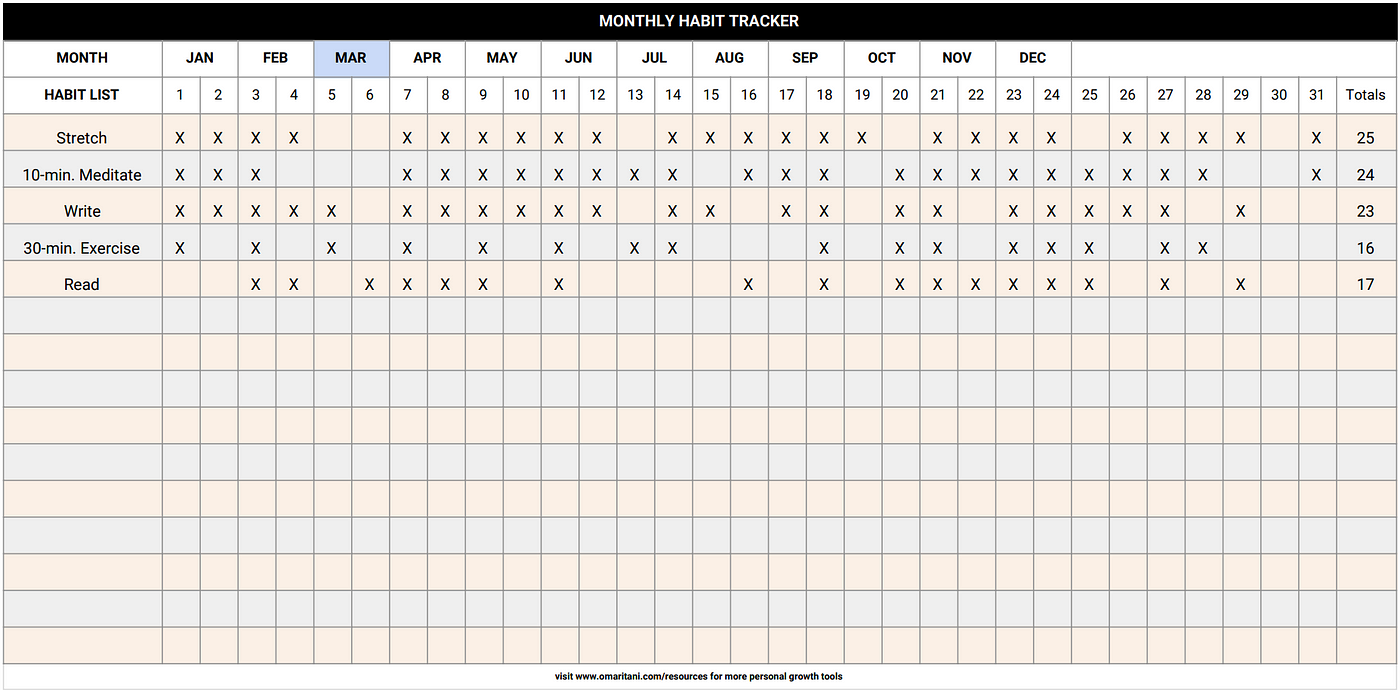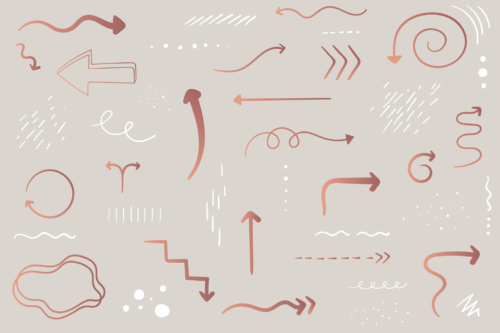Very often, what stands in the way between your journey to success and you is you — your mindset, your habits, your actions, and your attitude.
And it’s only when you fully grasp the notion of what Will Durant famously said: “We are what we repeatedly do”, that you begin to appreciate Rumi’s words:
“Yesterday I was clever so I wanted to change the world. Today I am wise so I am changing myself.”
Here are the 10 daily habits I’ve since integrated. They’ve drastically improved my life — they’ve made me more self-aware, more productive and increased my energy and focus.
Putting My Phone on Airplane Mode Before Going to Sleep
Do you know what’s the best feeling to wake up to? Zero notifications. Zero calls. Zero messages. Nothing I have to attend to.
According to a study by IDC Research, “about 80% of smartphone users check their mobile devices within 15 minutes of waking up each morning.” If you’re one of those, you need to stop.
Checking your phone first thing after waking up increases your stress levels and primes your brain for instant distraction. More importantly, it automatically sets you in a reactive state instead of a proactive one — you give away your power to your reactions to other people’s requests. Your brain becomes overwhelmed with information.
Putting my phone on airplane mode ended this vicious cycle. I now wake up stress-free, distraction-free and stay away from my phone the first 30 minutes.
Meditating Every Morning
Over the past 6 months, I’ve been building the habit of starting my morning with a 15-minute mediation session and I’ve noticed a considerable difference in my mental energy when I slack off and go 2–3 days without a session.
On the days that I do meditate, I feel like I’ve set the tone for the day.
I train myself to focus my attention and be in control of my mind. It helps me find calm and clarity while also allowing me to lengthen my attention span on tasks that come after in the day (ex: writing).
There are over 12 science-based benefits of meditation — but what I love about its daily practice is that in a world of distracting noise and chaos, I begin my day mentally focused and emotionally calm.
Stretching Every Morning
I began this habit because I had no other choice. After an accident a few years ago where I fractured my spine, I started having severe back problems.
I was given a set of stretches by my physiotherapist to do every day — and it has changed the fluidity of my body. I’m much more flexible now; I can even bend over and rest my palms on the floor without bending my knees.
After my morning meditations, I roll out my mat and stretch my body. Sometimes I do a variety of yoga poses. Sometimes I do a foam rolling session. What matters is that I’ve given my body a chance to wake up and breathe.
Practicing Gratitude: One Line Per Day
“Opportunities, relationships, even money flowed my way when I learned to be grateful no matter what happened in my life.” — Oprah
As with anything in life, you become a grateful person with practice. The best method that has worked for me? One line per day. Every night before going to bed, I open my journal and ask myself: “What am I grateful for today?” And then I proceed to write one line in my journal.
That’s it. And this habit helps me go to bed in a much more positive state.
The beauty of this exercise? You can look back over the year and find 365 things you were grateful for. That’s called abundant living, and isn’t that a life worth being thankful for?
Writing Everyday
I only started writing and publishing toward the end of 2019, and to say it is changing my life is an understatement. Here’s why:
- Writing has given me a purpose. I believe that fulfillment in life comes from following our calling. Mine is writing — and so I write. It’s my “one thing” — I use my words to share my experiences, encourage others to pursue their calling and help people lead more fulfilling lives.
- Writing has given me more clarity. I write my goals in my journal every month, and I reflect on their progress every week. Twice a week, I open up my journal and write how I feel. This form of self-conversation is how we become more aware of our thoughts and in turn, more aware of our emotions and more clear of where we want to take our life.
- Writing helps me cement what I read and learn. A lot of the articles I publish are inspired by the books that I read. In writing out concepts and ideas, I internalize them better. This is called “the generation effect”, a concept that states we learn what we read when we write it down.
I’ve become a more productive, self-aware and disciplined person because of the habit of writing daily. So my advice is this: Write every single day. Write to yourself. Open a journal and reflect. And if you don’t know how to start, try writing down one line per day. Then two, three, and four…
Intermittent Fasting
Here’s a perfect explanation of intermittent fasting provided by Healthline:
“Intermittent fasting is an eating pattern where you cycle between periods of eating and fasting. You fast for 16 hours every day and restrict your eating to an 8-hour eating window. No food is allowed during the fasting period, but you can drink water, coffee, tea, and other non-caloric beverages.”
There’s a whole lot of studies that have explored the benefits of intermittent fasting, but I do it for 3 reasons:
- It burns more fat and catalyzes weight loss.
- It improves my mental clarity and concentration.
- It helps me practice willpower.
I stick to a weekday routine where my first meal of the day is anywhere between 11.30 am to 1.00 pm— so I fast on 14-hour to 15-hour windows. And it’s due to a combination of intermittent fasting, healthy eating and regular exercise that I haven’t gained any significant weight (over 2 kgs) over the past 2 years.
Habit-Tracking
“Consistency is the key to achieving and maintaining momentum.” — Darren Hardy
Whatever it is you want to achieve in your life, there’s only one thing that will get you there: consistency. In fact, consistency was my one-word intention for this year. And what’s the best way to stay consistent? Use a habit tracker.
I was first introduced to this concept from James Clear’s Atomic Habits and it transformed my thinking about building better habits and systems to achieve our goals. Habit-tracking is the act of tracking your habits so you can measure your progress as you work toward creating sustainable change.
Here’s an example of what it looks like:

You will find an empty template here for you to download.
Simple filly out the list of habits you want to track for the given month and anytime you do take an action toward it, mark an X in the box. Your goal is to not break the chain of X’s. I currently track the following daily habits: meditation, stretching, writing, reading, exercise and this month I added a new one — waking up at 6.00 am.
Living “Slow”
I spent my twenties living fast and chasing happiness. I set unrealistic goals, I pushed myself too hard, and eventually, this past summer, I hit burnout.
That’s when I decided this:
I will stop living fast, and I will start living slow.
Living slow means listening to your body and giving it the rest it deserves. It means sleeping 8 hours a night. It means not forcing myself to go exercise if I’m tired. It means refusing to reach a level of exhaustion.
You can build a habit of living slow only when you begin to see what can only be felt with the heart.
Living slow means not rushing your mornings, but rather waking up earlier to enjoy your “slow” start to your day. It doesn’t mean “being lazy”; it means actively working towards your goals one day at a time, one small step at a time. Living slow means living without self-inflicted pressure.
You can build a habit of living slow only when you begin to see what can only be felt with the heart: the music in the sounds of chirping birds, the joy of sitting around a dinner table with your friends, the beauty of a sinking sunset.
Reading at Least One Article a Day
Reading expands our mind and boosts our creative imagination. While I aim to finish one new book a month by reading a few pages every day, there are days when I just don’t find the time to open a book and read. That’s when I turn to an article online.
The idea is simple: There’s a wealth of knowledge out there and the more input I consume, the more output I can produce, so I do my best to read every day and learn something new — even if that means only reading a 500-word article.
Drinking at Least 500 mL of Water Before I Go To Sleep and After I Wake Up
According to a study, “drinking water in the morning increases weight loss and improves mental performance.”
About 60% of your body is comprised of water, and since our body loses water regularly (due to sweat, caffeine, urine), we need to compensate for these losses to avoid dehydration.
Drink 500mL of water before going to bed and first thing in the morning. It helps you stay hydrated, flushes out toxins and keeps your skin healthy. For me, drinking water before I go to sleep helps me wake up earlier (dehydration makes you tired) and in the mornings, it wakes up my system.
30-Minute Exercise Sessions
“Take care of your body. It’s the only place you have to live.” — Jim Rohn
Sometimes, I’m lazy. Sometimes, I’m tired. Sometimes, I’m just not in the mood. And on those days, I might not exercise. But as with any habit mentioned above, I do my best not to break it more than twice in a row.
The most important thing is to move every day. On weekdays I go to the gym for a 30-minute workout session. On the days that I don’t, I go for a 10-minute walk around the block. On weekends I go on a nature stroll through a park.
The habit of exercise has kept me healthy thus far into my life.
It’s scientifically proven to be an instant mood booster and stress-reducer. In fact, it even helps you stop overthinking. So whatever you decide to do, keep moving.
Courtesy: Medium.com








